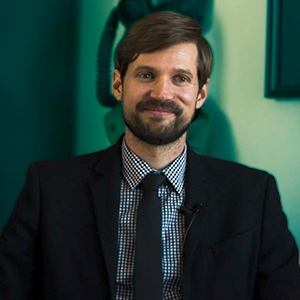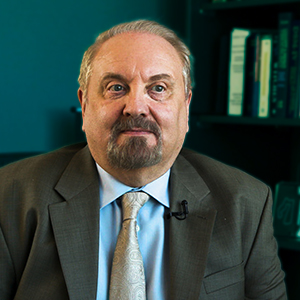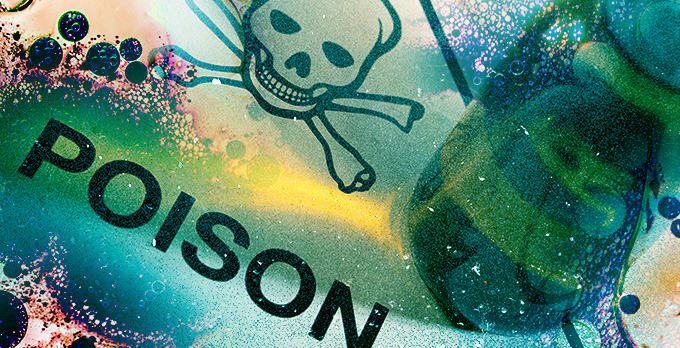During National Poison Prevention Week, new leaders of the New Mexico Poison & Drug Information Center want the public to know when and how to get help, if they believe their health or the health of a loved one is in danger.
“With the age of technology and people looking up information online, the information you find is not always reliable,” said Joseph Lambson, PharmD, DABAT.
Lambson is the director of the New Mexico Poison Center, which is part of the UNM College of Pharmacy and affiliated with the UNM Health System. He, along with the center’s medical director, David Gummin, MD, compiled a list to educate the public about poison prevention and poison response services in the state of New Mexico.
1. The New Mexico Poison & Drug Information Center is Poison Control
Known by many names, Gummin clarified they all refer to the same singular resource.
“New Mexico has only one poison center,” Gummin said. “Some people like to call it a poison control center. Some people call it ‘UNM Poison Center,’ some call it ‘UNM Health's Poison Center.’ But there is only one New Mexico Poison Center.”
2. Anyone and everyone can call the New Mexico Poison Center
“The New Mexico Poison Center is able to provide services for individuals in more than 80 languages,” Lambson said. “Language is not a barrier, so please call.”
3. Call about anything and everything, any time
If you are concerned that you have overdosed on a medication, you have a bug or snake bite, a child ate an unknown item off the floor, or you are worried about chemicals you may have inhaled, Lambson said he encourages the public to call the 24/7 poison hotline.
“It is the dose that determines the poison,” Lambson said. “If there are concerns that you have taken too much of anything, or if you have simple questions of these types of products, it is always appropriate to call the New Mexico Poison Center.”
Poison Prevention Quick Links
If you're wondering if you should call the New Mexico Poison Center, click here for a list of common poison-related questions and information from the UNM College of Pharmacy.
“Eighty-five to 90 percent of the time we do not send people to the emergency department,” Gummin added. “We manage their poisoning or potential poisoning, right at home.”
Lambson said calls to poison control centers nationwide result in more than $10 million in health care cost savings, per year.
“If you are trying to decide if you should go to an emergency room or not, call the New Mexico Poison Center,” Lambson said. “Our specialists are trained medical professionals in clinical toxicology and can help in that decision-making process to know what kind of care you need.”
While some might be hesitant to call, he wants every caller to know the priority of the poison center is the health of the individual.
“The New Mexico Poison Center does not keep track of how many times you call,” Lambson added. “If you have children who get into things multiple times a day, it is appropriate to call every single incident.”Join Dr. Lambson and Dr. Gummin for the Upcoming Poison Prevention Livestream
When the Unexpected Happens – Ask a poison & Drug Information Specialist
Date: Friday, March 22nd
Time: 12-1 PM MDT
Event Page: Click Here
Join us for our 2024 National Poison Prevention Week Q&A live stream, covering a variety of topics from medication errors, envenomation, accidental poisonings, and more. Our experts will be available to answer your questions live.
How to post a question: Those interested can visit the event page to RSVP and may write a comment on the event announcement with their questions. Participants may also ask questions during the livestream.

Meet Joseph Lambson, PharmD, DABAT
Lambson recently completed a two-year fellowship in clinical toxicology at the Utah Poison Control Center, connected with The University of Utah. It was there he was recruited to lead the New Mexico Poison Center and started his work in the Land of Enchantment in August 2023.
“I am also an assistant professor at the UNM College of Pharmacy,” Lambson said. “So, in addition to the administrative duties of being a poison center director, there is also a clinical component, a teaching component, and a research component.”
Whether Lambson is teaching pharmacy students at UNM or the general public about when to call poison control, he takes his role as an educator just as seriously as his director role.
“I love how it can help families and communities,” he said. “It can be very concerning when a loved one gets into something that's very dangerous, or potentially dangerous. And I love being able to help those who are concerned and maybe don't know what to do, helping them know what they should do in that type of situation.”

Meet David Gummin, MD
Also new to the team, as of August 2023, Gummin is in charge of the guidelines and medical oversight of the New Mexico Poison Center.
“That is the medical information that is provided in every single call, 24/7/365,” he said. “It is provided by medical professionals with extensive training in what constitutes poisoning.”
Gummin said calls to the New Mexico Poison Center do not always come from the general public. Sometimes they come from hospitals and health care providers who request advice and additional expertise. Those calls are often managed in consultation with a medical or clinical toxicologist.
In addition to being the medical director of the poison center, Gummin is a medical toxicologist and a professor of Emergency Medicine at the UNM School of Medicine. He said, even though he is new to New Mexico, he is not new to toxicology or emergency medicine.
“I trained and lived in the Midwest for the last quarter century before coming to New Mexico,” he said. “New Mexico is a unique place. Everyone who lives here knows that. It is not like the rest of the country, and I am finding out more and more every day how unique this place is, and how unique some of the concerns are related to poisonings and potential poisonings here.”
